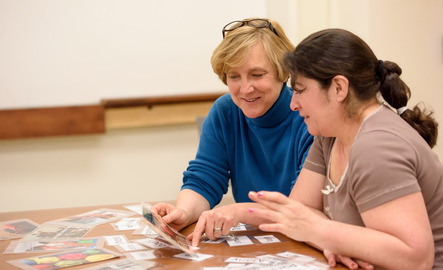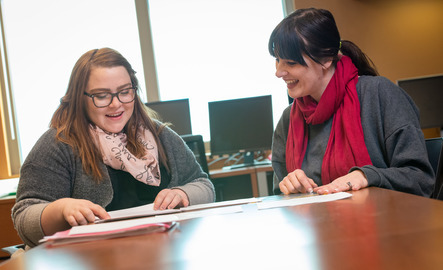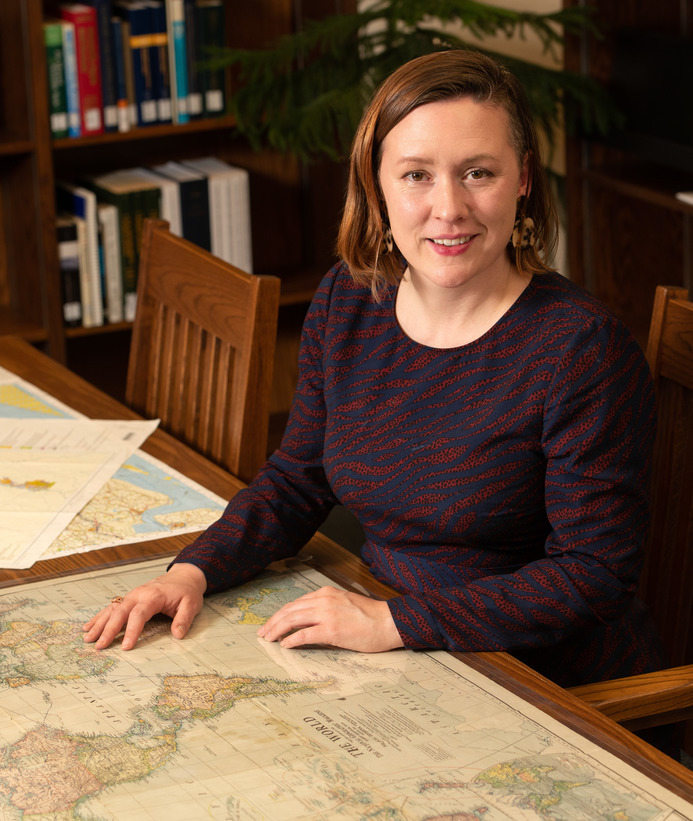What is UW's German Program all about?
From our program, you’ll gain insight into the perspectives of German-speaking cultures. As you learn to speak the German language, your understanding of its origin will better prepare you for the global world. Here, students have the resources to pursue the various avenues and knowledge that come with learning a new language.

Faculty in the Department of Modern and Classical Languages are dedicated to showing
their students the rich German culture that can be accessed through the language.
Professor Rebecca Steele is an expert in the long 18th and 19th centuries, concentrating
particularly on women authors and representations of women and female monsters; Senior
Lecturer Mark Person has published major translations of Alexander von Humboldt and
Ottmar Ette.

What Can You Do with a Minor in German?
With a minor in German, you can build a career in international business, education, translation, government, tourism or cultural organizations. As the second most common language in science, German connects you to global literature, research, and industry. It also sets a strong foundation for graduate studies in fields like linguistics, literature, international relations or law. Language skills open global doors!
- Postsecondary Teacher
- International Business Consultant
- Tourism and Travel Coordinator
- Lawyer
- Judge
- Interpreter
- Translator
- Foreign Service Officer
- Cultural Affairs Specialist
- Localization Specialist
- Georgetown University
- University of Pennsylvania
- University of California, Los Angeles
- Rutgers University
- University of Wyoming
Absolutely! While our German program offers a strong foundation in language skills, it goes far beyond that. Students also dive into the rich culture, literature and history of German-speaking countries. You’ll gain a deeper understanding of Germany’s role in global politics, philosophy, art and science—making it a well-rounded, immersive academic experience.
Yes! German is in high demand for international careers, especially in business, science, engineering and diplomacy. It’s widely used in the EU and is a key language for global companies, research institutions and cultural exchange.
“My academic career in the German program was so much more than instruction in the German language, than intercultural enlightenment, than analysis of literature. The German program provided me with the tools to learn how to truly integrate into a foreign culture, how to skillfully communicate with our international neighbors, and how to positively affect the unstoppable advance of globalization. Anyone can take a semester abroad, learn how to order food, and abuse hundreds of colorful colloquialisms, but it is the foreign language student who is more often than not the one who is able to walk away from foreign exchanges with meaningful connections forged to help foster grassroots internationalization. The German program cultivated these skills in me.”
- Kevin Wrobetz | M.A. ‘15


